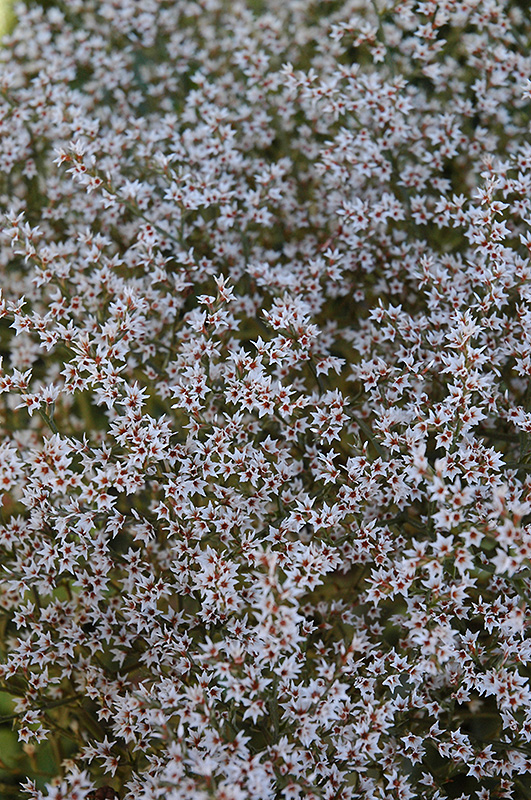Height: 12 inches
Spread: 12 inches
Sunlight:
![]()
Hardiness Zone: 2
Other Names: Dumosa
Description:
A drought and salt tolerant selection perfect for fresh or dried flower arrangements, borders or seaside gardens; low mounds of oval shaped foliage produce tall flower stems bearing small, white star flowers
Ornamental Features
German Statice features airy panicles of white star-shaped flowers with rose eyes at the ends of the stems from mid to late summer. The flowers are excellent for cutting. Its oval leaves remain bluish-green in colour throughout the season.
Landscape Attributes
German Statice is an herbaceous perennial with tall flower stalks held atop a low mound of foliage. It brings an extremely fine and delicate texture to the garden composition and should be used to full effect.
This is a relatively low maintenance plant, and may require the occasional pruning to look its best. It is a good choice for attracting butterflies to your yard, but is not particularly attractive to deer who tend to leave it alone in favor of tastier treats. It has no significant negative characteristics.
German Statice is recommended for the following landscape applications;
- Mass Planting
- General Garden Use
Planting & Growing
German Statice will grow to be about 12 inches tall at maturity, with a spread of 12 inches. Its foliage tends to remain dense right to the ground, not requiring facer plants in front. It grows at a medium rate, and under ideal conditions can be expected to live for approximately 10 years. As an herbaceous perennial, this plant will usually die back to the crown each winter, and will regrow from the base each spring. Be careful not to disturb the crown in late winter when it may not be readily seen!
This plant should only be grown in full sunlight. It prefers dry to average moisture levels with very well-drained soil, and will often die in standing water. It is considered to be drought-tolerant, and thus makes an ideal choice for a low-water garden or xeriscape application. It is not particular as to soil pH, but grows best in sandy soils, and is able to handle environmental salt. It is highly tolerant of urban pollution and will even thrive in inner city environments. This species is not originally from North America.

